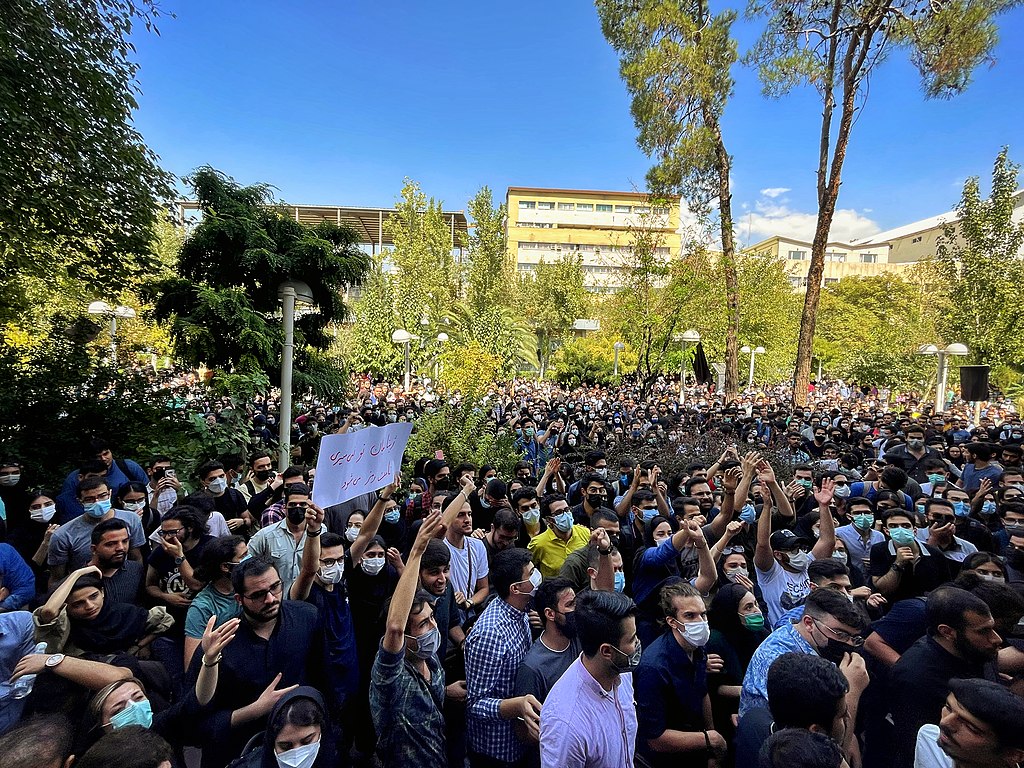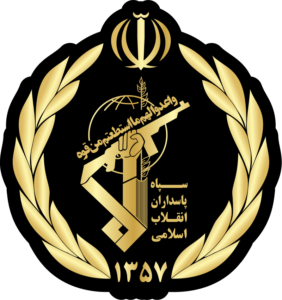Are Pahlavists Advancing Russia’s Agenda in America?

By Dr. Reza Parchizadeh
Pahlavists, the far-right fanatics that are seemingly keen to revive the fallen Pahlavi autocracy by taking advantage of the popular anti-regime revolution in Iran, exploit Russian divisive tactics in an attempt to sabotage the credibility of Iranian liberal democracy activists in the United States.
In what looks like a systematic smear campaign out of the Kremlin’s playbook, the Pahlavists resort to all sorts of McCarthy-style dirty tricks to character-assassinate their democratic political opponents and likely future rivals as “communists.” The aim of this campaign is seemingly to highlight the Pahlavists on the DC stage by investing in the “anti-communist unity” of the United States and the Imperial Iran under Mohammad Reza Shah Pahlavi during the Cold War.
In order to advance their agenda, Pahlavist strategists count on the classic “Red Scare” in America. The United States, as the quintessential capitalist country of modern times, has always been the target of communist infiltration and subversion. As international communists actively attempted to dissolve liberal democracy and establish a socialist system in the United States, from the early to the late 20th century communism was America’s gravest concern in the realm of national security.
With the beginning of the Cold War at the end of the second World War, which eliminated the international fascist bloc and brought the global communist and capitalist fronts face to face, the Red Scare intensified in the United States to such an extent that it led to anti- communist legislation and regulation. In 1954, Congress passed the “Communist Control Act” that outlawed the US Communist Party and criminalized membership in and support for all communist organizations across the country.
communist legislation and regulation. In 1954, Congress passed the “Communist Control Act” that outlawed the US Communist Party and criminalized membership in and support for all communist organizations across the country.
This escalated version of the Red Scare more or less persisted until the end of the Cold War, and only after the collapse of the Soviet Union did the American establishment start to ease its stance on communism. However, in recent years, as the threat of international communism led globally by the People’s Republic of China and boosted by Cuba and Venezuela in the American backyard has re-emerged, sensitivities towards communism have once more increased in the United States.
It is in view of this raised sensitivity in America that Pahlavists have jumped on the bandwagon of populist conservatism to smear their democratic political opponents as communists. As a matter of fact, their specific campaign should be cast against the broader backdrop of the rise of the global far-right, as, for instance, manifested in QAnon antisemitic conspiracy theories amplified by Russian agitation that allege a cabal of “Jews, pedophiles and communists” is running the American “deep state”, which led to the infamous January 6, 2021 attack on US Congress.
A more striking example recently emerged in Germany, where an extremist group affiliated with the ultranationalist Reichsbürger movement sought to overthrow the democratic government through an armed coup and install a member of a German noble family as the country’s monarch. Some members of the group are devoted to the German Empire while some are of Nazi persuasion, but all reject Germany’s postwar constitution and pro-American orientation and want to dismantle the democratic federation, apparently with Russian stimulation.
Back to Pahlavists, their attempts to discredit the democratic opposition also bear the footprints of the security apparatus of the Islamic Republic, which constantly sows discord among its opponents so that a unified democratic front cannot be created against it. The problematic alignment of the Pahlavists with the Islamist regime comes into sharp focus when their other actions are taken into account, from violently attacking anti-regime demonstrators abroad who do not endorse monarchism, to vilifying Kurds and Balochs as “terrorists” and “separatists” while they have been suffering military-level crackdown at the hands of the regime due to their spearheading of the revolution in Iran.
As such, although Pahlavists have managed to gain some genuine support among conservative circles in the United States and the Middle East, their recent catapulting to the center stage of Iranian opposition abroad might have actually followed from Tehran and Moscow’s machinations. As I have explained before, since the Islamist-style anti-Westernism no longer feels viable in the face of mounting domestic and international pressure, Russia and pro-Russian elements of the Revolutionary Guards might seek to keep their hold on Iran by installing an ostensibly Western-friendly ultranationalist regime whose strings the Kremlin continues to pull. As such, the perceived boost to Pahlavists in DC at the expense of liberal democracy activists can in a way be seen as an attempted Russian anti-revolution in Iran.
Reza Pahlavi, the son of the overthrown Shah of Iran who is the centerpiece of Pahlavism, has time and again made overtures to the IRGC, the Basij, the army and the security apparatus of the regime and called upon them to join “the future government of Iran”. He even openly capitalizes on what he says is his “connection” to the Revolutionary Guards. And he has done so regardless of the fact that these ruthless organizations are the regime’s main instrument of suppressing the protesters, and that the IRGC is the only state-level sponsor of terrorism in the whole world to have been designated as such by the United States and to different degrees by a number of other nations.
the Basij, the army and the security apparatus of the regime and called upon them to join “the future government of Iran”. He even openly capitalizes on what he says is his “connection” to the Revolutionary Guards. And he has done so regardless of the fact that these ruthless organizations are the regime’s main instrument of suppressing the protesters, and that the IRGC is the only state-level sponsor of terrorism in the whole world to have been designated as such by the United States and to different degrees by a number of other nations.
Assuming Pahlavi succeeds in pulling off the implausible feat of bringing in line the brutal military and security apparatuses of the regime and convincing the people of Iran and the democratic world to forget their appalling history of crime and terror so that he can step on their shoulders and become king (or president), the fact that this inherently anti-American, anti-Arab and antisemitic political structure is to remain almost intact in such a scenario of “controlled transition” means that Iran is highly unlikely to change course in terms of international orientation even in case of a supposed “regime change”. And this scenario is similar to what occurred in Russia after the collapse of the USSR.
Thus, in a dramatic plot twist like the one in The Manchurian Candidate where rabid right-wingers are revealed to be the instruments of a  global communist conspiracy, Pahlavists might also be inadvertently advancing Moscow’s agenda in DC by maligning Iranian liberal democracy activists on the one hand and promoting an ultranationalist discourse on the other. As such, those in the West and the Middle East who have a stake in Iran need to tread more carefully with regard to Pahlavism.
global communist conspiracy, Pahlavists might also be inadvertently advancing Moscow’s agenda in DC by maligning Iranian liberal democracy activists on the one hand and promoting an ultranationalist discourse on the other. As such, those in the West and the Middle East who have a stake in Iran need to tread more carefully with regard to Pahlavism.
In the end, we must not forget that keeping Iran in the Western sphere of influence by resorting to the Pahlavi dictatorship rather than developing democracy was the fatal error that delivered Iran into the hands of the Islamists and the “communists” in the first place, and doing so again will mean repeating the same terrible mistake. The long-term security interests of America and her allies around the world will only be protected by helping Iran achieve a multiparty liberal democracy with a representative government that fundamentally embraces the foundations of Western Civilization and genuinely seeks to be a friend of the United States, Europe, the Arab world and Israel.
 Dr. Reza Parchizadeh (@DrParchizadeh) is a political theorist, security analyst, and cultural expert. He holds a BA and an MA in English from University of Tehran and a PhD in English from Indiana University of Pennsylvania (IUP), all with honors. He wrote his master’s thesis on Middle Eastern history and Orientalist philosophy; and his doctoral dissertation on political thought and cultural studies in the English-speaking world, and defended both with distinction. His major areas of research interest are medieval and early modern political thought, Protestant Reformation, Renaissance Literature, British Empire, Film Studies, Middle East Studies, Chinese Studies, Japanese Studies, Russian Studies, Security Studies, and International Relations. Dr. Parchizadeh is on the editorial board of Journal for Interdisciplinary Middle Eastern Studies at Ariel University’s Faculty of Humanities and Social Sciences, the Department of Middle Eastern Studies. He is also an international committee correspondent for World Shakespeare Bibliography, the prestigious joint project of Johns Hopkins University and Shakespeare Association of America that constitutes the single-largest Shakespeare database in the world and is published by Oxford University Press. Currently, he serves on the editorial board of the international news agency Al-Arabiya Farsi.
Dr. Reza Parchizadeh (@DrParchizadeh) is a political theorist, security analyst, and cultural expert. He holds a BA and an MA in English from University of Tehran and a PhD in English from Indiana University of Pennsylvania (IUP), all with honors. He wrote his master’s thesis on Middle Eastern history and Orientalist philosophy; and his doctoral dissertation on political thought and cultural studies in the English-speaking world, and defended both with distinction. His major areas of research interest are medieval and early modern political thought, Protestant Reformation, Renaissance Literature, British Empire, Film Studies, Middle East Studies, Chinese Studies, Japanese Studies, Russian Studies, Security Studies, and International Relations. Dr. Parchizadeh is on the editorial board of Journal for Interdisciplinary Middle Eastern Studies at Ariel University’s Faculty of Humanities and Social Sciences, the Department of Middle Eastern Studies. He is also an international committee correspondent for World Shakespeare Bibliography, the prestigious joint project of Johns Hopkins University and Shakespeare Association of America that constitutes the single-largest Shakespeare database in the world and is published by Oxford University Press. Currently, he serves on the editorial board of the international news agency Al-Arabiya Farsi.